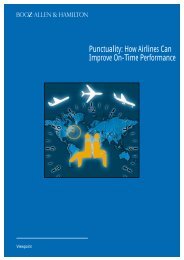The sentence
The sentence
The sentence
Create successful ePaper yourself
Turn your PDF publications into a flip-book with our unique Google optimized e-Paper software.
‘<strong>The</strong>’ to refer to things that are unique (not place names)<br />
1. We often use the to refer to ‘things that are unique’:<br />
a. organizations: the United Nations g. historical events: the French Revolution<br />
b. ships: the Titanic h. official titles: the President<br />
c. documents: the Constitution i. political parties: the Labour Party<br />
d. public bodies: the police, the Government j. the press: <strong>The</strong> Economist, <strong>The</strong> Times<br />
e. titles of books and films: <strong>The</strong> Odyssey k. beliefs: the gods<br />
f. climate: the weather l. the whole species: the dinosaurs<br />
2. We treat other, similar, words as proper nouns and use no article, e.g.<br />
a. organizations: Congress, Parliament d. official titles: Queen Elizabeth<br />
b. titles of books and films: Jams e. the press: Punch, Time magazine<br />
c. beliefs: God, Buddha f. the whole species: Man<br />
D. <strong>The</strong> zero article (1)<br />
Basic uses of the zero article (Ø ): ‘Life is short’<br />
We often use no article at all (zero) in English where some other languages us the:<br />
1. In front of plural countable nouns used in general statements, e.g. for:<br />
- people: Ø Women need better pay. - places: Ø Museums are closed on Mondays.<br />
- animals: Ø Cats don’t like cold weather. - plants: Ø Tress don’t grow in the Antarctic.<br />
- food: Ø Beans are good for you: - products: Ø Watches aren’t expensive.<br />
2. In front of uncountable nouns (always singular) used in general statements, e.g. for:<br />
- food: I like Ø butter. - substances: Ø Oil is produced in Alaska.<br />
- colours: Ø Red is my favourite colour. - activities: Ø Swimming is good for you.<br />
- abstract: Ø Life is short. - languages: Ø English is a world language.<br />
(Not *<strong>The</strong> life is short.* etc.)<br />
3. In front of most proper nouns (names spelt with a capital letter)<br />
Fritz Weber lives in Berlin. This was made by Jackson and Son.<br />
By comparison, we use the when the reference is specific, not in general statements:<br />
1. In front of plural countable nouns: <strong>The</strong> beans I like best are kidney beans.<br />
2. In front of uncountable nouns: I used all the butter that was in the butter dish.<br />
3. In front of proper nouns: <strong>The</strong> Fritz Weber I know lives in Vienna.<br />
<strong>The</strong> zero article with names and titles: ‘Mr Pym’<br />
1. We do not normally use articles in front of proper nouns (like John, London, etc).<br />
2. We use a surname or first name + surname after Mr, Mrs, Miss and Mr /məz/ : Mr Pym,<br />
Mr. John Pym. We often write, but rarely say Ms, as in Ms Joan Cartwright.<br />
3. We abbreviate Doctor to Dc in writing and use a surname after it: I’m Dr Brown, but we<br />
can use Doctor on its own as a form of address (written in full): It’s my liver, Doctor.<br />
21




